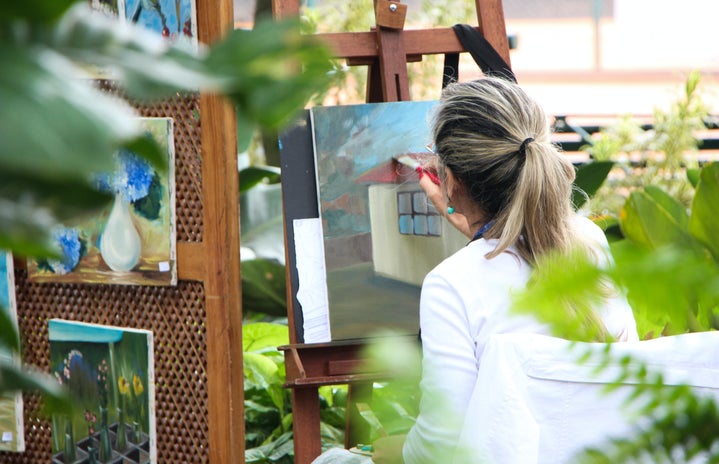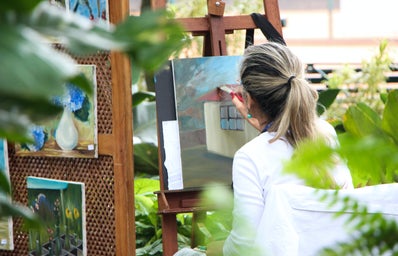Dr. Pauline Ota is an art and art history professor at DePauw University. I interviewed her today to ask about what it’s like teaching during a pandemic, what advice she has for students, the importance of learning about specific topics, etc.
HerCampus: Why did you choose to teach at DePauw?
Dr. Ota: I liked the emphasis on teaching alongside the support of faculty research. I firmly believe that undergraduate teaching stimulates new approaches to scholarly research. I also think that working with students is incredibly rewarding in other ways, such as witnessing how much intellectual development can happen in just four short years! My dear, late colleague, Catherine Fruhan, used to always say, “They pay me for the grading; the teaching I would do for free.”
HC: What are some challenges of teaching this school year, in relation to following COVID-19 regulations?
Dr. Ota: The biggest challenge for me has been balancing basic logistics— those things that we took for granted pre-COVID such as walking into a classroom without a mask and not worrying about social distancing—with effectively teaching content. Learning how to manage a speaker, a webcam, and Zoom simultaneously is an ongoing challenge for me personally. I also worry a lot about students feeling isolated and cut off when they spend so much time on Zoom. Despite all of these challenges, I’m heartened by just how resilient, patient, and kind DePauw students have been to each other, as well as faculty and staff. I’m really proud of DePauw.
HC: What is one thing you want your students to take away from the courses you teach?
Dr. Ota: More than any other skill, close looking is the one that I want students to take away from my classes. To really take the time to look and think about what you see matters. This kind of visual analysis skill will be applicable to multiple fields, and, I firmly believe will lead to success, whether a student becomes a museum curator, businesswoman, lawyer, mathematician, copy editor, or health-care professional.
HC: What is one major benefit of learning about art and art history as a college student?
Dr. Ota: Besides the visual analysis skills that students master, having an appreciation for the visual arts feeds the soul, builds awe for the achievements of human beings across time, and confirms the power that art has to impact society in positive, as well as negative ways.
HC: Your teaching interests include the artistic exchange between East Asia and Euro-American West. Why do you think it is important to learn about other cultures?
Dr. Ota: It was President Obama who stated that “…in the twenty-first century, our destiny is shared with the world’s” (Susan Rice, Tough Love: My Story of the Things Worth Fighting For, Simon & Schuster, 2019, p. 238), we live in an intimately interconnected world and in fact, we have been for a long time. I believe, therefore, it’s important to learn about and to do our best to understand other cultures because we have a relationship with them, indirectly, as well as directly. People we will never meet living in places we may never visit impact our lives as we do there’s. It’s humbling to think about.
HC: What advice do you have for the Class of 2024, who are beginning their college experience?
Dr. Ota: Explore, learn, ask lots of questions, take a risk now and again, and most of all enjoy! You will make life-long friends and find out what really matters to you in the next four years, so cherish every moment, even the ones that suck big time.
HC: What advice do you have for the Class of 2021, who are beginning their professional experience?
Dr. Ota: It will be a bit scary, as well as exciting. You will make mistakes. But you will be fine. You are well trained and have the skills necessary to succeed. So, go out there and make your mark. We’ll be watching and cheering you on from afar, but are only a phone call, text, or email away, so don’t be strangers.



